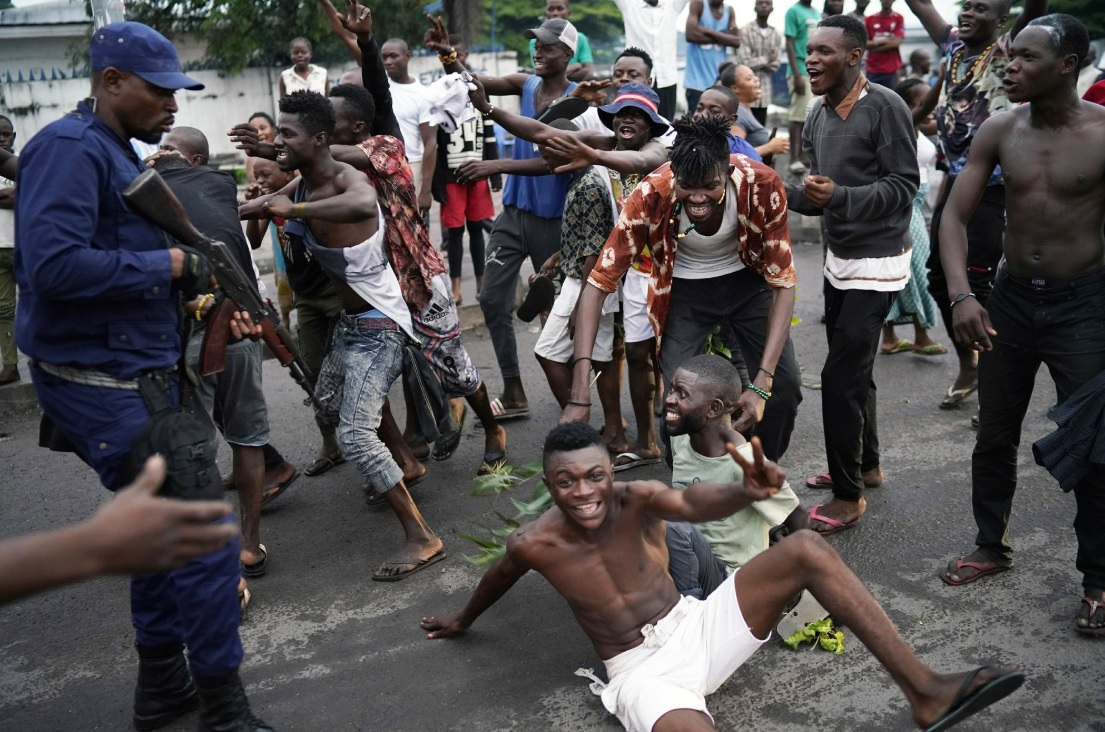Congo’s election result challenged by Catholic churches

- Country:
- Congo Dem. Rep.
Tshisekedi, who received 38 percent of the vote according to the electoral commission, had not been widely considered the leading candidate. Long in the shadow of his father, the late opposition leader Etienne, Tshisekedi startled Congo last year by breaking away from the opposition’s unity candidate, Fayulu, to stand on his own.
Fayulu, a former Exxon manager and Kinshasa lawmaker, received 34 percent of the vote in the official results.
“How long are we going to negotiate results?” he asked. “In 2006, Jean-Pierre Bemba’s victory was stolen. In 2011, Etienne Tshisekedi’s victory was stolen. In 2018, victory won’t be stolen from Martin Fayulu.”
Even before the announcement, some observers suggested that Kabila’s government made a deal with Tshisekedi as hopes faded for ruling party candidate Emmanuel Ramazani Shadary, who received just 23 percent of the official results.
Many Congolese had objected to Shadary, suspecting that Kabila would continue to rule from behind the scenes. France’s foreign minister, Jean-Yves Le Drian, bluntly cast doubt on the official results. Belgian Foreign Minister Didier Reynders said his country planned to raise concerns at the U.N. Security Council. The delayed results, nearly two weeks after the Dec. 30 vote, came after international pressure to announce an outcome that reflected the will of the people. The United States threatened sanctions against officials who rigged the vote.
The largely peaceful election was marred by the malfunctioning of many voting machines that Congo used for the first time. Dozens of polling centers opened hours late as materials went missing. And in a last-minute decision, some 1 million of the country’s 40 million voters were barred from participating, with the electoral commission blaming a deadly Ebola virus outbreak. Defiantly, tens of thousands of voters in one of the barred communities held their own unofficial ballot on election day, and Fayulu won easily.
Congo’s government cut internet service the day after the vote to prevent speculation on social media. Some Congolese weary of Kabila’s 18-year rule, two turbulent years of election delays and years of conflict that killed millions of people said they simply wanted peace. Some said they would be happy as long as Fayulu or Tshisekedi won, while recalling the violence that followed past disputed elections.
Kabila has ruled since 2001 in the troubled nation rich in the minerals key to smartphones around the world and has amassed vast wealth. He is barred from serving three consecutive terms, but until he announced last year that he would step aside many Congolese feared he’d find a way to stay in office. Now Congo faces a new leader who is little known after spending many years in Belgium and standing behind his outspoken father. The 56-year-old Tshisekedi took over as head of Congo’s most prominent opposition party in early 2018, a year after his father’s death.
Gleeful Tshsekedi supporters in Kinshasa, a lively opposition stronghold, said they were delighted by their candidate’s win and happy to see Kabila step down.
“This is the coronation of a lifetime,” said the deputy secretary-general of Tshisekedi’s party, Rubens Mikindo. “This is the beginning of national reconciliation.”
ALSO READ
Three soldiers killed by mortar on Southern African mission in Congo
Briton who ran length of Africa says Congo kidnapping was only time he mulled quitting
Briton who ran length of Africa says Congo kidnapping was only time he mulled quitting
DR Congo: Restore internet services as 'a matter of urgency', urges UN expert
Congo signs amended PSC with China’s Wing Wah for Banga Kayo block










